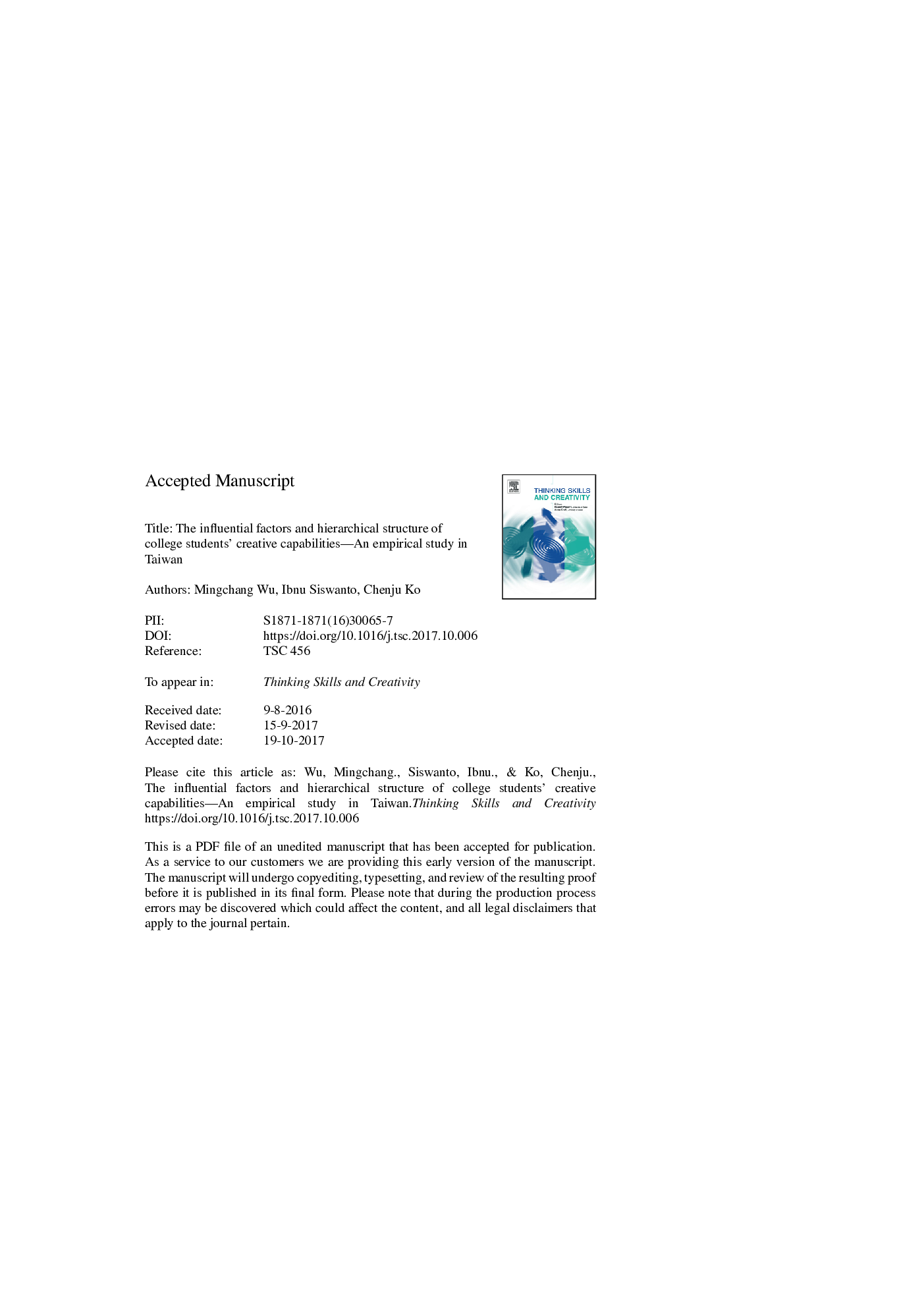| Article ID | Journal | Published Year | Pages | File Type |
|---|---|---|---|---|
| 6851945 | Thinking Skills and Creativity | 2017 | 27 Pages |
Abstract
A series of empirical studies and related theories all declared that affective creativity, imagination, and self-efficacy separately enhance students' creative thinking and academic achievement, testifying to the single-factor effect. Conversely, there was no empirical study simultaneously considering the interactive effects among these personality factors and collaboratively affecting students' performance. Therefore, this study purports to establish and test a theory-driven framework of the hierarchical structure and influential paths indicating how affective creativity, imagination, and self-efficacy interactively affecting creative thinking and academic achievement. Data were collected through questionnaires from 322 students of the National Yunlin University of Science and Technology, Taiwan. Taking a structural equation modeling analysis, this study illustrated that the hierarchical model was acceptable (with good fits) and specified that higher students' affective creativity led to their creative thinking through imagination and self-efficacy as mediators, and continuously influenced students' academic achievement. These intrapersonal constructs were reconfirmed to be significantly related to each other and concurrently influenced their academic achievement. These conclusions both retrospectively and introspectively proposed further suggestions to explore some approaches to enhance students' creative thinking and academic achievement, while considering the complex interaction of intrapersonal and external factors.
Related Topics
Social Sciences and Humanities
Psychology
Developmental and Educational Psychology
Authors
Mingchang Wu, Ibnu Siswanto, Chenju Ko,
